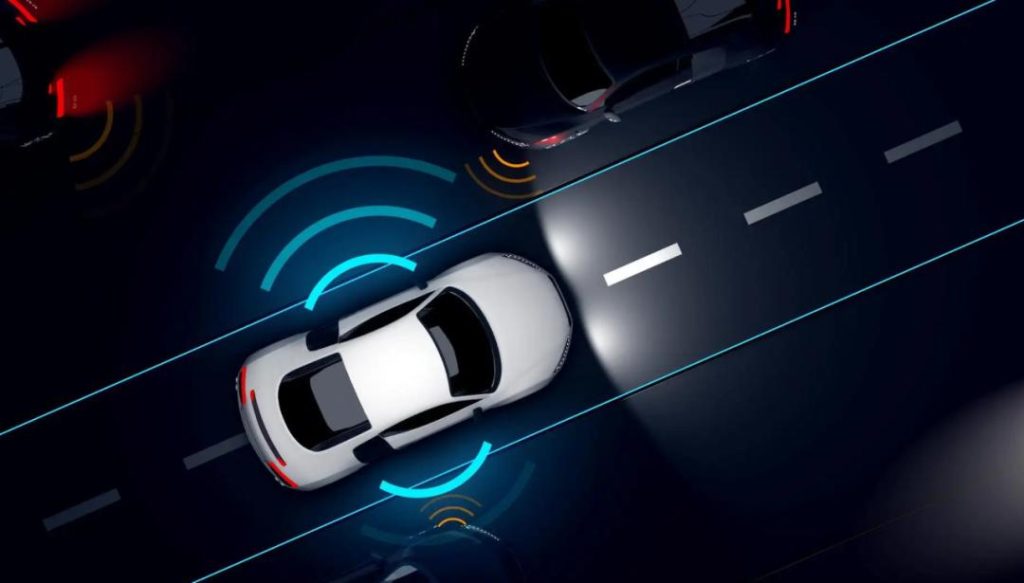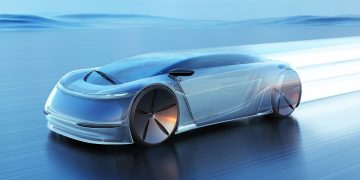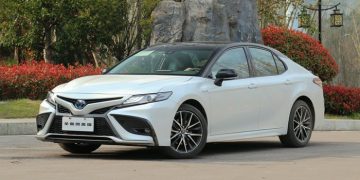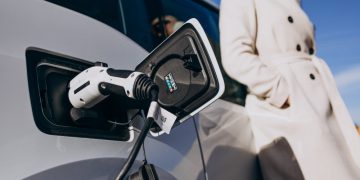Introduction: The Need for Convenient Charging Solutions in the Electric Vehicle Era
As electric vehicles (EVs) become more mainstream, one of the key factors influencing their widespread adoption is the convenience of charging. Despite the undeniable advantages of electric cars—such as their environmental benefits and lower operating costs—many potential consumers still feel hindered by the logistics of charging. Whether it’s long charging times, the need for regular trips to public charging stations, or the concern of running out of charge during a trip (range anxiety), the current charging infrastructure for EVs is not yet as seamless as refueling a traditional gasoline car.
Wireless charging technology, also known as inductive charging, has emerged as a promising solution to simplify and enhance the EV charging experience. Wireless charging eliminates the need for physical connections, allowing EV owners to charge their vehicles in a more convenient, hassle-free manner. As the development of wireless charging matures, it has the potential to reshape the way electric vehicles are charged, making the process quicker, easier, and more accessible than ever before.
This article explores how wireless charging technology works, its potential advantages for EV owners, its role in the future of electric vehicles, and the challenges it must overcome to become a mainstream solution.
Section 1: Understanding Wireless Charging Technology
Wireless charging technology for electric vehicles operates on the same basic principle as charging systems used in consumer electronics like smartphones and electric toothbrushes. The technology uses electromagnetic fields to transfer energy between two coils—one located in the charging station and the other in the vehicle.
1.1 How Wireless Charging Works for Electric Vehicles
Wireless EV charging is based on inductive power transfer (IPT), which consists of two key components:
- Transmitter Coil: This coil is embedded in the ground (typically beneath a parking space or embedded in a road surface) and is responsible for creating a magnetic field when connected to a power source.
- Receiver Coil: This coil is mounted under the electric vehicle and receives the energy transmitted by the transmitter coil through the magnetic field.
The electromagnetic field created by the transmitter coil induces an electric current in the receiver coil, which is then converted into DC (direct current) electricity to charge the vehicle’s battery.
Wireless charging can be stationary (where the vehicle is parked over a charging pad) or dynamic (where the vehicle is charged while driving over embedded charging lanes). Currently, most wireless EV charging systems are stationary, but dynamic wireless charging is a promising future development that could allow for on-the-go charging.
1.2 Types of Wireless Charging for EVs
There are several types of wireless charging technologies, each with varying levels of power and efficiency. These include:
- Low Power Charging: Used for smaller EVs or auxiliary applications, this technology can provide relatively slow charging at home or in private parking spaces.
- High Power Charging: Designed for use in larger EVs or for fast-charging applications, this technology can deliver more power, allowing for quicker charge times.
- Ultra-Fast Charging: Still in development, ultra-fast wireless charging systems aim to provide rapid charging capabilities that can match or exceed traditional wired fast charging stations.
Section 2: The Benefits of Wireless Charging for Electric Vehicles
Wireless charging offers several key advantages over traditional wired charging systems, making it an attractive solution for the future of EV charging. The most prominent benefits include convenience, safety, and integration with smart city infrastructure.
2.1 Increased Convenience for EV Owners
One of the most compelling reasons why wireless charging will likely play a major role in the future of electric vehicles is its convenience. Traditional charging stations require drivers to physically plug the charging cable into the car, which can be cumbersome, especially in harsh weather conditions or tight parking spaces. Wireless charging eliminates this need for manual interaction, allowing drivers to simply park over a charging pad and automatically begin charging without any effort.
This convenience can extend to both home charging and public charging stations:
- Home Charging: EV owners can install wireless charging pads in their garages, making it as simple as parking the car over the charging station to begin the charging process. This reduces the need to handle heavy cables and ensures the charging process is entirely automated.
- Public Charging: Wireless charging stations could be integrated into public spaces, such as parking lots, public streets, or shopping centers. Drivers could park anywhere within a designated wireless charging zone and receive a charge without having to search for a nearby plug.
The absence of cables and plugs also reduces the wear and tear on physical connectors, potentially prolonging the life of the vehicle’s charging port.
2.2 Enhanced Safety
Wireless charging systems are generally safer than traditional wired systems. With no physical connection between the vehicle and the charging station, the risk of accidental electrocution is significantly reduced. Additionally, the absence of exposed cables or plugs reduces the risk of tripping accidents or damage to the charging infrastructure caused by rough handling.
Furthermore, the electromagnetic fields used for wireless charging are generally low-frequency and operate within strict safety regulations. As such, they are not harmful to people or pets, making wireless charging an attractive solution for environments like public spaces or homes with children and pets.
2.3 Future Integration with Smart Cities
Wireless charging technology has the potential to integrate seamlessly into the broader concept of smart cities. In a smart city, infrastructure and vehicles are connected through digital networks, enabling more efficient resource management and a better quality of life for residents. Wireless charging can be an integral part of this vision by enabling the following:
- Dynamic Wireless Charging on Roads: As part of smart city infrastructure, roads and highways could be embedded with wireless charging coils, allowing EVs to charge while driving. This technology could eliminate the need for large battery packs, as vehicles could be charged on-the-go, extending their range indefinitely. This would be particularly beneficial for long-distance travel and freight vehicles.
- Urban Mobility Solutions: With wireless charging, electric taxis, buses, and delivery vehicles could continuously charge while operating in urban environments. This would reduce downtime for charging and increase the availability of electric vehicles for public transportation and logistics.
- Seamless Parking Solutions: Wireless charging could make parking in public spaces easier by allowing automatic charging to take place while the vehicle is parked. Parking spots equipped with wireless charging pads could be easily integrated into urban areas, reducing the time spent locating charging stations and ensuring that vehicles are always topped up.

Section 3: Overcoming Challenges to Wireless Charging Adoption
While wireless charging technology offers exciting potential, there are still several challenges that need to be addressed before it can become a mainstream solution for electric vehicle charging.
3.1 High Development Costs
One of the major hurdles in the widespread adoption of wireless charging technology is the high cost of development and installation. Wireless charging infrastructure is more complex than traditional plug-in charging stations and requires specialized equipment, including inductive coils, power converters, and communication systems.
The cost of these systems must be reduced to make wireless charging a cost-effective solution for both consumers and businesses. Additionally, the installation of wireless charging pads in public and residential areas requires substantial investment in infrastructure.
3.2 Limited Efficiency and Power Transfer
Another challenge facing wireless charging is the efficiency of energy transfer. Currently, wireless charging systems are less efficient than traditional plug-in chargers. Some energy is lost during the process of transferring electricity from the transmitter coil to the receiver coil, which can result in longer charging times and greater energy consumption.
While advances are being made to improve the efficiency of wireless power transfer, achieving similar levels of efficiency as wired systems remains a challenge. This inefficiency can be particularly problematic for high-power charging applications, such as fast charging for EVs.
3.3 Standardization and Compatibility
The lack of standardization in wireless charging technology poses another obstacle. Different manufacturers may develop proprietary wireless charging systems, leading to compatibility issues between vehicles and charging stations. For wireless charging to become widely adopted, industry-wide standards and interoperability must be established to ensure that all EVs can use any wireless charging station, regardless of the manufacturer.
3.4 Infrastructure Development and Global Rollout
While wireless charging systems are being developed in research labs and pilot projects, the rollout of large-scale infrastructure remains a significant challenge. Installing wireless charging pads in public spaces, parking lots, and roads requires coordination between governments, cities, and private businesses. This effort will take time, and the cost of retrofitting existing infrastructure could be substantial.
Section 4: The Future of Wireless Charging for Electric Vehicles
Despite the challenges, wireless charging holds tremendous promise for the future of electric vehicles. Over the next few years, we can expect to see several key developments that could push wireless charging toward mainstream adoption:
- Improved Efficiency: As research progresses, we expect to see significant improvements in the efficiency of wireless charging systems, bringing them closer to the energy transfer rates of traditional plug-in chargers.
- Cost Reductions: As the technology matures, manufacturing costs for wireless charging systems are likely to decrease, making them more affordable for consumers and businesses.
- Integration with Autonomous Vehicles: Wireless charging could play a pivotal role in the future of autonomous electric vehicles. These vehicles may require minimal human intervention for charging, making wireless charging an ideal solution for fleets of autonomous EVs in smart cities.
- Widespread Infrastructure Deployment: As EV adoption grows and demand for charging infrastructure increases, wireless charging stations may become a common feature in urban areas, parking lots, and even highways.
Conclusion: Wireless Charging – A Convenient Future for Electric Vehicles
Wireless charging technology has the potential to fundamentally change the way we charge electric vehicles, providing more convenience, safety, and integration with smart city infrastructure. While challenges such as high development costs, limited efficiency, and infrastructure development remain, the benefits of wireless charging—particularly in terms of convenience, safety, and seamless integration with smart cities—make it an exciting prospect for the future of electric vehicles.
As the technology continues to evolve and become more affordable, wireless charging will likely become a key enabler of the widespread adoption of electric vehicles, helping to overcome some of the most significant barriers to EV adoption and further accelerating the transition to a sustainable, electric future.











































